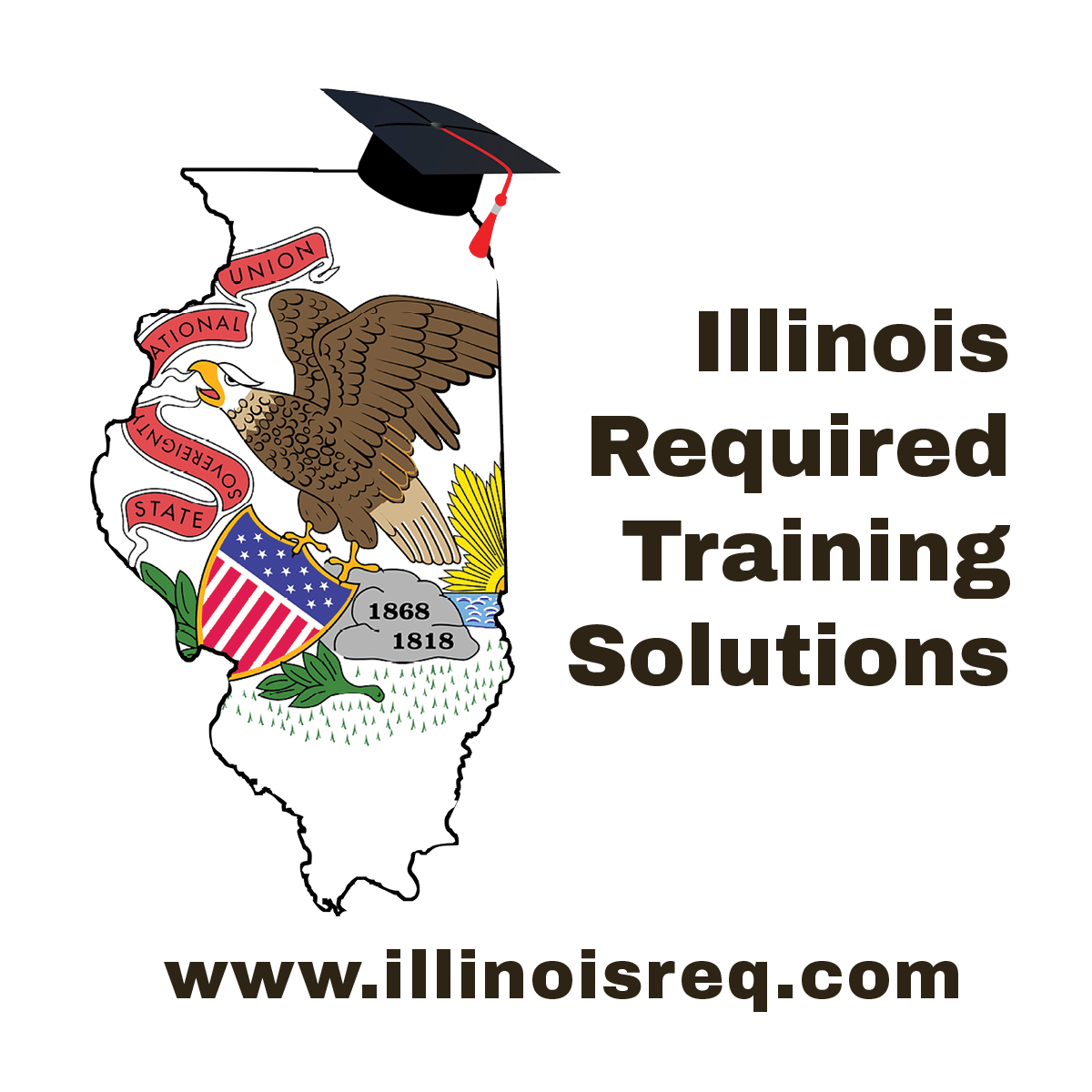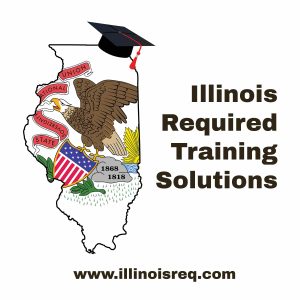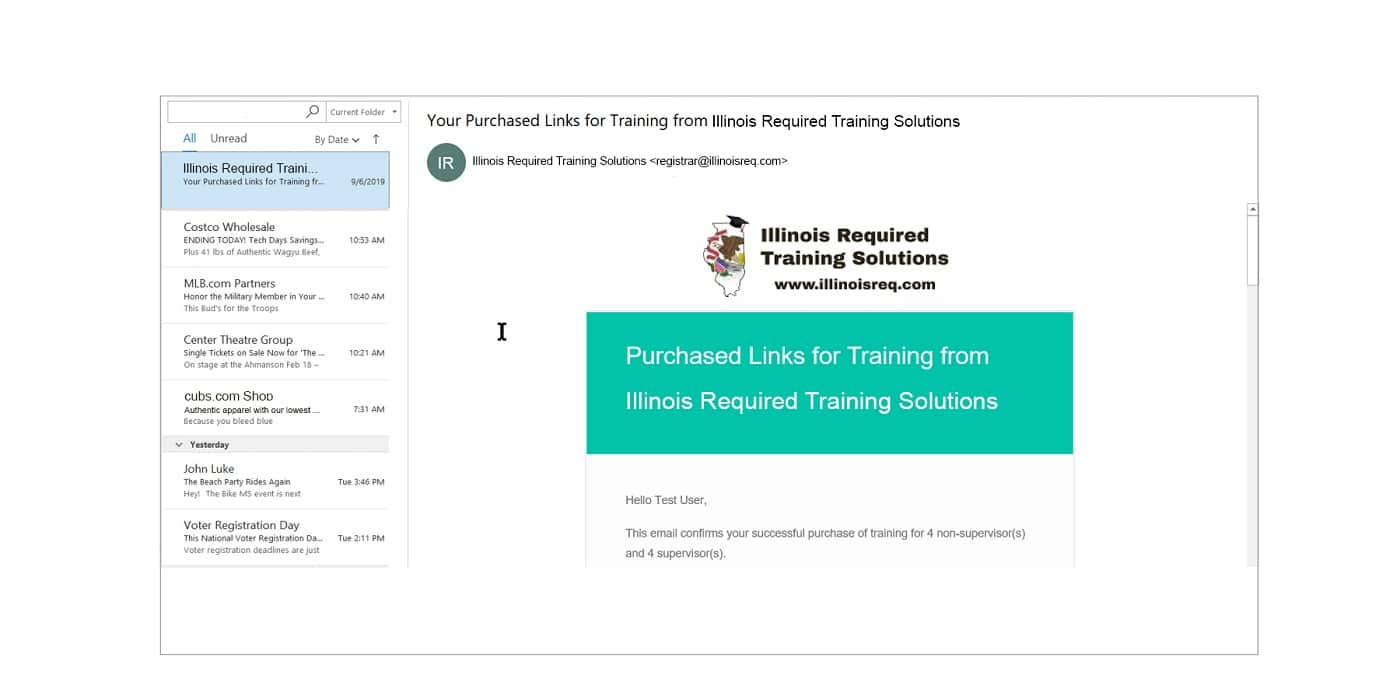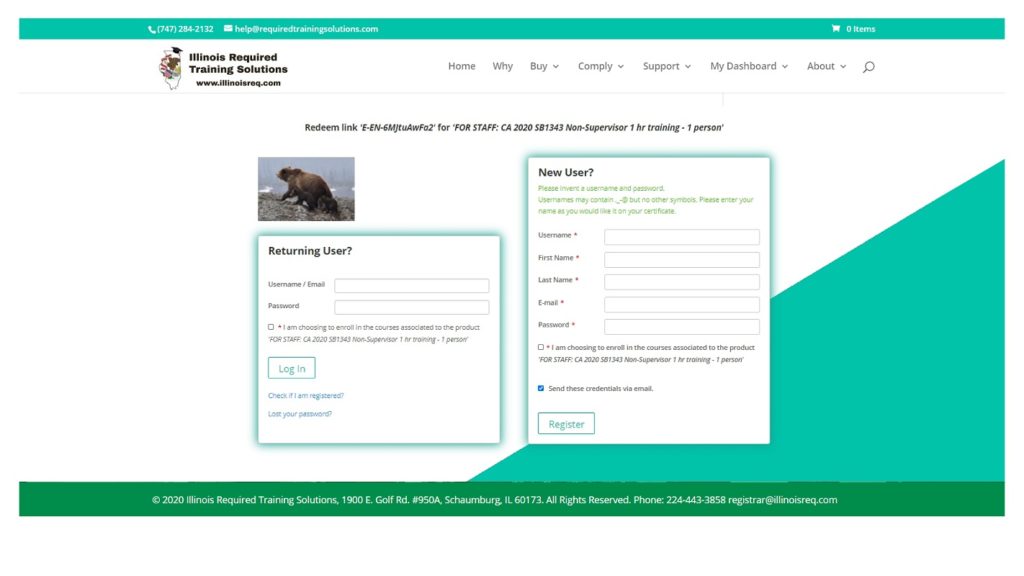Unlock Efficiency and Savings: take Illinois sexual harassment prevention training at the best time of year.

When is the best month to complete Illinois sexual harassment prevention training?
Annual sexual harassment prevention training is now mandatory for every Illinois worker. Taking the right course(s) at the right time can save you time and money — if you know how to choose and when to complete that training. Follow the steps below and schedule now to save time and money.
Know the sexual harassment prevention training requirements you need to comply with.
What course(s) do you have to take? Illinois sexual harassment prevention training (SHPT) requirements are very complicated because they are the product of several statutes. And when is the best time to train depends on which type of training you need to receive.
Illinois state minimum SHPT requirements
Illinois SB-75 requires every worker to to take sexual harassment prevention training every year, usually interpreted as the calendar year. Courses that fulfill SB-75 basic SHPT requirements are often referred to as “state minimum” courses.
However, the SB-75 statute also imposed additional requirements on workers in businesses that serve alcohol or food that is ready-to-eat, which is why you’ll see some SHPT courses labelled “bar/restaurant” or similarly. If you don’t work in or operate such a business, you won’t want or need a specialized bar/restaurant SHPT course, although the bar/restaurant course does meet the requirement for non-food/beverage business. See here for more on the transferability of prior training.
Chicago SHPT requirements
On top of Illinois State’s requirements, Chicago City imposed additional SHPT training requirements. All workers must receive one hour of Bystander Intervention Training, which is often thought of as the “glue” that makes sexual harassment prevention training “stick”. In addition, supervisory personnel must receive 2 hours of sexual harassment prevention training each year, while non-supervisory personnel only need 1 hour. It’s clear that the City Council thought of the IL state minimum training as fulfilling the one hour requirement, however the statute they wrote and approved doesn’t match the state training requirements. As a result, most companies offer tailored courses for Chicago compliance.
Who, exactly, is a Chicago Supervisor?
IDFPR-licensed professional SHPT requirements
Finally, we have licensed professionals with a Continuing Education (CE) requirement. Since the state was requiring SHPT every year, the IDFPR requires all licensed professionals with a CE requirement to make 1 hour of their CE an SHPT course. But it’s important to note that the state minimum course does not comply with the requirements under the licensed professionals statute, HB 4953. Instead, in the year that licensed professionals are renewing their license, they must take the SHPT course from a CE Sponsor under their active license. And while licensed professionals may take their SHPT course from a CE Sponsor licensed in any profession, due to the way the laws are written in some professions the trainee may not receive the 1 hour of CE credit. Finally, Chicago Supervisors who have to complete 2 hours of SHPT still may only receive 1 hour of CE when meeting their IDFPR licence renewal SHPT requirement.
Maximize the overlap and count the certificates.
Once you’ve established which requirement(s) above you need to comply with, save money and time by finding a course or course bundle that meets all the requirements needed (and none that are unnecessary). You can validate the compliance of the course bundle you choose by counting the number and type of certificates the training generates at completion.
IL state minimum: train anytime, but save the most money by training early in the calendar year.
If you’re not working in Chicago and either not a licensed professional or not renewing your license this calendar year, congratulations on your ability to save the most time and money. You’ll find the greatest array of courses that fulfill SB-75 basic SHPT requirements, and these can be completed anytime in the calendar year. However, since many people leave training until the last minute, know that discounts will be deepest early in the calendar year. Generally you’ll receive only one certificate for state minimum courses, which are valid for the calendar year of the course completion.
For all-online state minimum courses from Illinois Required Training Solutions, see here for state minimum courses for most businesses and here for bar/restaurant state minimum courses.
Chicago: train in the first half of every year.
Because Chicago City’s initial annual deadline was June 30th, in order to overlap with the Illinois State requirements the joint training should always be completed in the same half of consecutive calendar years. For example, train later than June 30th and the Chicago component of the training will count for the next calendar year’s compliance, but the state minimum training would have to be repeated the following calendar year as well. When you couple this with the fact that discounts tend to be deepest early in the calendar year well in advance of deadlines, it makes economic sense and saves the most time to take a joint Illinois / Chicago City training in the first half of every calendar year, well in advance of the June 30th Chicago deadline. For course bundles that meet both Illinois state and Chicago City requirements, you should receive two certificates of completion: one for the sexual harassment prevention training component specifying the Chicago role and time spent, and one for the bystander intervention training component.
For all-online joint Illinois State and Chicago City course bundles from Illinois Required Training Solutions, see here for course bundles for most businesses and here for bar/restaurant course bundles.
IDFPR-licensed professional: in the calendar year of renewal, take the CE course early.
If you are a professional licensed by the Illinois Department of Financial and Professional Regulation (IDFPR) in a profession with a Continuing Education (CE) requirement, firstly you’ll want to ensure that you are aware when your license is renewing. Then you’ll plan your CE units to conclude in advance of that date for a timely renewal. Online on-demand training is helpful whenever there’s a short amount of time to complete training, because it is so fast and flexible.
How do I check when an Illinois license renews?
To meet your license renewal SHPT requirement, ensure that you’ll complete your training in the calendar year that your license renews (but before the renewal date). Ensure that the SHPT will be completed under the CE Sponsor license of the provider. If overlapping with state and/or Chicago requirements as discussed above, you’ll want to see one more certificate than the number above, because you’ll need a certificate suitable for the IDFPR, with the sponsor’s license number printed on it. And of course, you can always look up a sponsor’s license using the license lookup link to ensure that it is active.
If you’re not renewing your IDFPR license in the current calendar year, for example for those holding 2-, 3-year or longer licenses, save money by taking the SHPT course or course bundle without CE. You’ll still spend the same amount of time to train, but you’ll save a few bucks as you don’t need to underwrite the extra cost of the sponsor’s license in the interim year(s).
For courses and course bundles with CE from Illinois Required Training Solutions, see here for course bundles for professionals in a renewal year.
See here for Chicago course bundles and here for non-Chicago courses for the non-renewal years.
TL;DR
Know which requirements you need to meet and buy overlapping training where you need it, but not when you don’t. Save the most by training early in the year and save stress by training well in advance of the deadlines. Online on-demand training is best for busy people who want to train as and when their schedules permit.

We can help with the training.
Illinois Required Training Solutions offers a fast, simple online training solution to Illinois' sexual harassment prevention training mandate. www.illinoisreq.com features fully compliant online courses that are self-paced, bookmarked, and can be taken from a host of mobile devices anywhere the internet is available. Course students can stop/start as many times as necessary without losing their place or progress, and retest until they pass. Upon finishing the course, students can immediately download and print/email a certificate of completion.
Employers find Illinois Required Training Solutions' online shopping cart system easy to use and course licensing easy to administer post-purchase. Upon adding the desired number of professional continuing education or non-CE, bar/restaurant or non-bar/restaurant, "4U/ to train yourself" or "for another/to train your staff" courses in English or Spanish to the cart, the purchase is completed using a credit card, PayPal, Venmo or Pay Later.
Immediately the purchaser is emailed a dedicated set of unique links for the "for another" courses that can be copied and forwarded individually to each trainee via email or text message. Each trainee must then register using a unique (not shared) email address.
Thereafter, the purchaser can log in to the site's dashboard to generate a real-time report showing which link has been used by which employee, and whether or not the worker has begun or finished the training. Here the purchaser can easily download each completed student's certificate.
Our generated certificates can be validated via our certificate number lookup tool to ensure that they are genuine.




Recent Comments